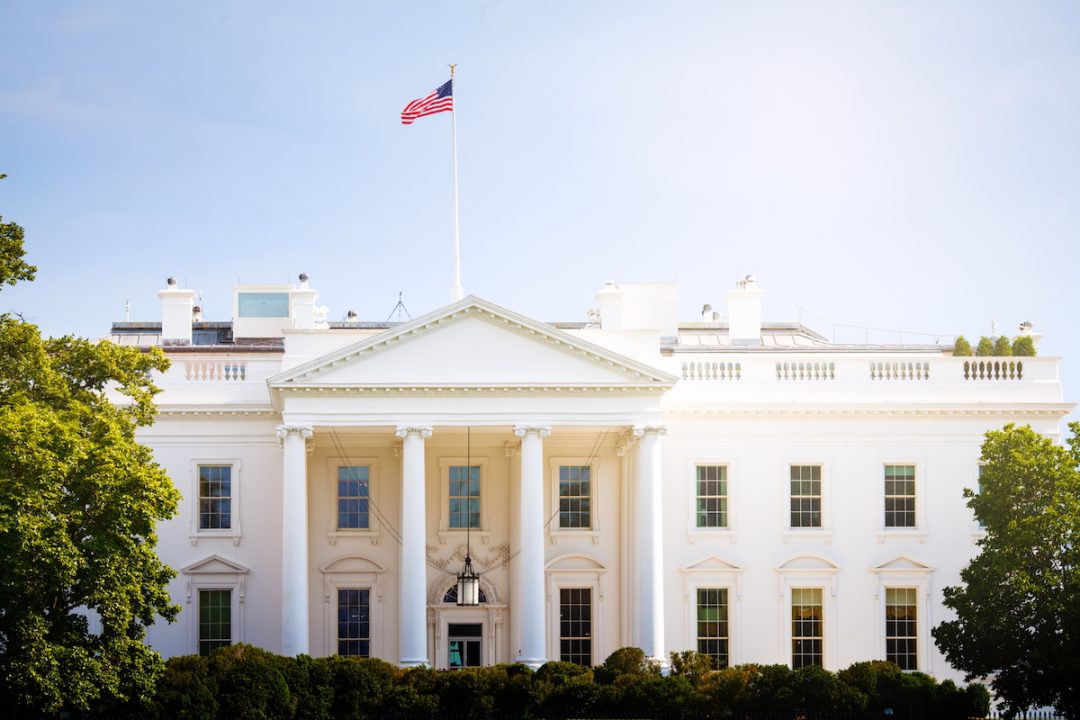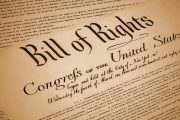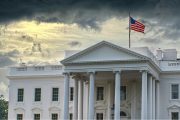
When the Founding Fathers designed the office of the president of the United States, they did so with the keen memory of monarchy fresh in their minds. George Washington, whose example remains the gold standard of American republican virtue, set a precedent that no president would serve more than two terms. That standard stood unbroken for nearly 150 years, until Franklin Delano Roosevelt won an unprecedented four terms. The reaction to that breach was swift and sure: In 1951, the states ratified the 22nd Amendment, ensuring that no person could be elected president more than twice.
Today, as political forces churn and passions rise, there are whispers — some even spoken aloud by Donald Trump himself — suggesting ways he might return to the presidency for a third term. As a constitutionalist, my duty is not to assess the merits of the man, but the legality of the method. And let me state it plainly: There is no constitutionally valid way for Donald Trump — or any person previously elected twice — to serve a third term as president of the United States.
Here we’ll examine the most commonly floated legal end-runs around the 22nd Amendment and provide constitutional conservatives with the ammunition necessary to stand firm in defense of our constitutional order.
The Vice President Loophole: A Trojan Horse Presidency
Claim: Donald Trump could run as vice president on a 2028 ticket, win, and then assume the presidency if the sitting president resigns or is incapacitated.
Response: This gambit collapses under constitutional scrutiny.
First, the 12th Amendment states:
No person constitutionally ineligible to the office of President shall be eligible to that of Vice-President of the United States.
Since the 22nd Amendment renders Trump ineligible to be elected president more than twice, and the 12th Amendment bars ineligible persons from the vice presidency, he cannot serve in that role.
Some might argue that the 22nd Amendment only prohibits being elected again, not succeeding through the line of succession. But this is a legal sleight-of-hand that ignores original intent.
The Framers of the 22nd Amendment, reacting to the unprecedented tenure of FDR, explicitly intended to restore the Washingtonian norm. They sought to ensure no one man could accumulate that much executive power over time. To subvert this by electing such a man as vice president and orchestrating a resignation of the president would be an affront to the very principle of term limitation.
And let’s be clear: The American people would see through this maneuver. It would amount to a de facto third term, cloaked in procedural trickery. It would erode public trust in the executive branch and ignite a constitutional crisis that no true conservative should wish to endure.
Amending the 22nd Amendment: A Steep and Slippery Slope
Claim: Congress or the states could amend the Constitution to permit a third term for presidents who’ve served non-consecutively.
Response: While technically permissible under Article V, the practical and moral obstacles are substantial.
Representative Andy Ogles (R-Tenn.) has introduced such a proposal. But to succeed, it would require a two-thirds vote in both the House and Senate and ratification by 38 states. That’s a nearly insurmountable climb in today’s divided political climate.
Moreover, the push to repeal presidential term limits smacks of political expediency, not principled constitutional reform. The two-term limit exists to prevent executive entrenchment. It’s a safeguard of liberty, not a speed bump to be flattened by populism.
If conservatives truly believe in the restraint of government power, then they must defend the 22nd Amendment — even when it binds someone they admire. To advocate its repeal for the sake of one man is to treat the Constitution as a tool of power, not a charter of limited authority.
Legal Challenges to the 22nd Amendment: A Fool’s Errand
Claim: Some legal theorists might argue that the 22nd Amendment is unconstitutional because it restricts voter choice or violates equal protection.
Response: This is the most self-defeating argument imaginable.
The 22nd Amendment is itself part of the Constitution. Once ratified under Article V, its authority is supreme. There is no higher American legal authority that can invalidate it — not Congress, not the courts, and certainly not the ambitions of a former president.
Even floating this idea suggests a dangerous misunderstanding of constitutional government. If we can set aside the Constitution’s express limits by judicial fiat, then the entire document becomes little more than parchment.
De Facto Third Term via Puppet Presidency: The Specter of Soft Despotism
Claim: Trump could place a loyalist in the White House and exercise control from the shadows.
Response: Though legally harder to regulate, this strategy would be morally bankrupt and politically poisonous.
This arrangement would render the president a mere figurehead and elevate a private citizen into de facto executive power without accountability. It would mimic the tactics of foreign strongmen — Putin’s handpicked successors come to mind — not the legacy of Washington, Jefferson, or Reagan.
It also violates the spirit of Article II, which vests executive power in a single president — not a dual arrangement, not a shadow Cabinet, not a backroom power broker. Constitutional government depends on transparent, legitimate authority — not whispered influence behind the throne.
Standing Guard at the Gates
We must not become so enamored of a political leader that we abandon the very structure designed to keep tyranny at bay. The 22nd Amendment is not an obstacle to greatness — it is a guardian of liberty.
As conservatives, constitutionalists, and defenders of the Republic, we must be the first to reject any effort to undermine the term limit on the presidency. Whether through legal gymnastics, legislative trickery, or puppet regimes, any attempt to return a twice-elected president to power must be met with swift and vocal opposition.
History will not forgive those who stood by silently while the constitutional floodgates were battered open.
And as for me? I will echo the spirit of Jefferson, who said:
In questions of power then, let no more be heard of confidence in man, but bind him down from mischief by the chains of the Constitution.
Let us bind even those we admire with those same chains, lest we forge shackles for ourselves and our posterity.




